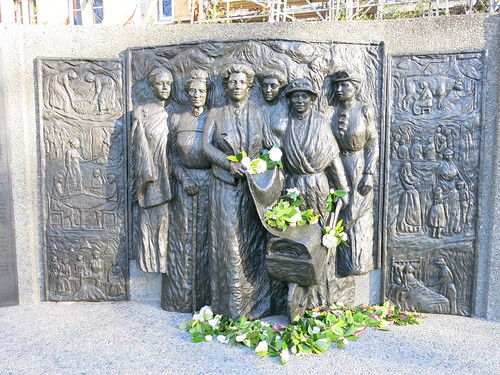In New Zealand, women campaigned for the right to run for national Parliament. They convinced men who had opposed the Electoral Act to support their cause, reminding them that allowing women to vote had no detrimental effects. In 1919, the Women's Parliamentary Act was passed, allowing women to run for and be elected to New Zealand’s Parliament. In 1933, Elizabeth McCombs, the first female member of Parliament was elected. Women also succeeded in changing divorce, pension, and labor laws to make them equal for both sexes.



